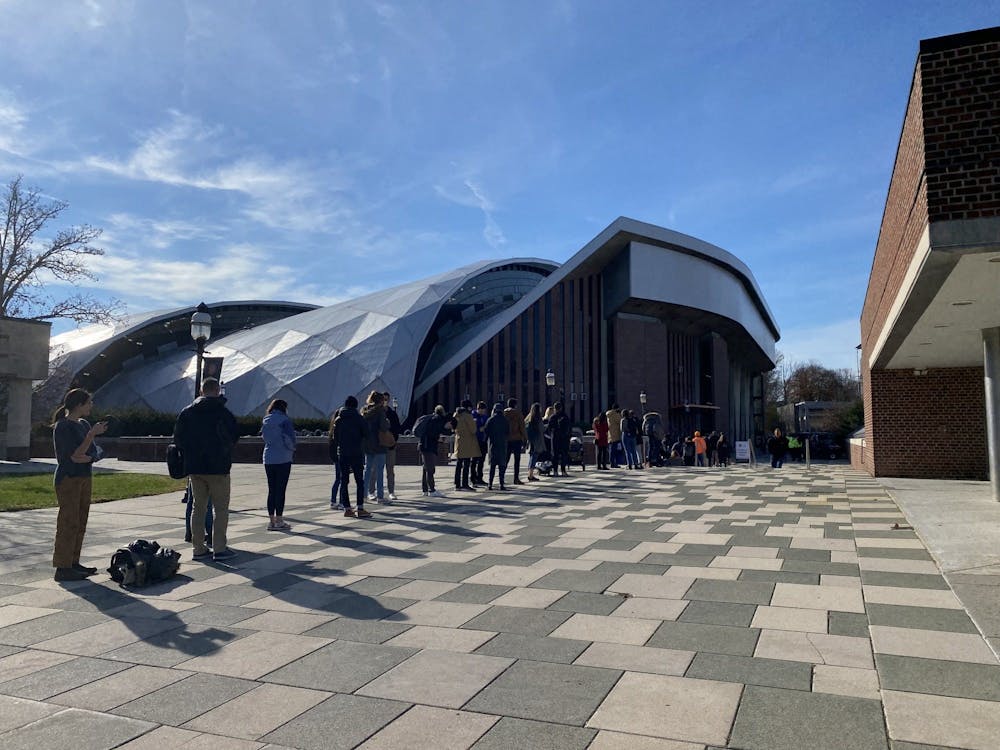As I scrolled through my daily flood of emails, one stood out to me: “Vaccine Volunteer Opportunity.” I clicked on the email and located the Google form, hoping to add my name to a list of people willing to volunteer at Princeton’s vaccine clinic. Yet as I opened the form, I saw a number of application questions. The form required me to write nearly 750 words. I don’t have time for this right now, I thought. I’ll fill it out later. I never did.
This wasn’t the first time a simple signup had turned out to be a lengthy application form. Over the past semester, I’ve had countless conversations with other freshmen about how everything (from simple volunteer opportunities to interest forms and low-commitment activities) seems to require an application. We applied to get into Princeton, we joke. Why are we still constantly applying now that we’re here? Not only is this trend often unnecessary, but in many cases, it is counterproductive — it discourages people from participating in events and opportunities on campus. Furthermore, it contributes to an overly-competitive environment for Princeton students.
This is not to say that some activities should not be application-based: In many cases, applications serve a useful purpose: Helping project leaders select the more capable candidates. Internships, committees, and other higher-commitment activities use applications to build a stronger team of workers. Yet there also comes a point where applications do more harm than good. In creating an unnecessary number of applications, organizers also create an unnecessarily competitive environment. Generally, a volunteer opportunity should be done for the sake of participating in a service activity — and applications serve to make these opportunities overly career-focused and competitive. For most volunteer-based projects, more sign-ups are preferred by organizers. After all, it is far easier to distribute time slots across a larger group of people, especially given Princeton students’ busy schedules.
Furthermore, simple projects like volunteering at the vaccine clinic (whose responsibilities include “greeting patients, managing the line, passing out paperwork, and creating a welcoming environment for all clinic attendees”) do not require as many qualifications or expertise as other activities. As a result, a lengthy application is rather unnecessary, simply decreasing the number of volunteers and putting more stress on those who do volunteer by increasing the number of slots to fill. If the organizers for a volunteer opportunity are concerned about having too many volunteers, there are better solutions than creating an overly-lengthy application: Positions could be allotted on a first-come-first-serve basis (with a waitlist) or via lottery, and a reduction in the number of time slots per person would increase the number of volunteer positions available.
As Princeton students, our instinct is to be active members of the community and participate in many activities. After all, this is what most of us did in high school. Yet the number of applications, coupled with our rigorous schedules, dissuades us from participating (or exploring) as much as we want to. While it’s important not to over-commit and overextend ourselves, college is an important period of experimentation and exploration. Furthermore, we should be able to explore our passions and embark on service opportunities without feeling like every activity is a competition or a job to be won. Ultimately, it’s the Princeton community as a whole that suffers — student engagement fuels this community, and we should be doing everything possible to encourage that genuine engagement.
Applications are undoubtedly a significant part of not only our college experience, but our preparation for the future. However, when overused, applications can serve to dissuade people from being active participants in the Princeton community. Rather than defaulting to creating overly-long applications, group leaders and organizers should reassess whether their projects require an application at all — especially when it comes to volunteer-based activities. If an application is required, it should be reduced and distilled down to only the most necessary components. It’s crucial that we find the balance between eliminating applications altogether (something that is neither feasible nor truly beneficial) and oversaturating the Princeton community with unnecessary applications.
Lucia Wetherill is a first-year from Newtown, PA. She can be reached at lw2158@princeton.edu.








